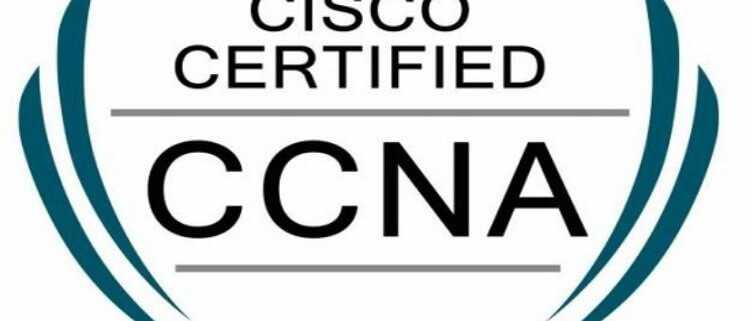
Know the Benefits of Obtaining a Cisco Certification
Cisco is the leading provider of networking and communications tools and services in the US. The commercial routing and switching solutions from Cisco, transport data, phone, and video traffic across global networks, are among its best-known products. Cisco offers many services, from simple product support to a full-fledged data center and cloud management solutions, storage networking solutions, unified communications applications (WebEx), telepresence, and collaboration (WebEx).
Whether you are new to Cisco or need to upgrade your present skills, there is a Cisco certification path for you. There are many Cisco online courses. Since February 24, 2020, Cisco has added certification alternatives designed to give you the freedom to rethink who you are and how you can contribute to your positions at work.
The Importance of CISCO Certification
For businesses, they signify the possibility of greater productivity and evidence of your skills, but for aspiring and seasoned IT professionals, they mean much more. To become certified is to advance professionally, feed your drive for success, and grow.
Stay Competitive
New Cisco certifications are evidence of expertise, ability, and a commitment to lifelong learning, which puts you ahead of the competition and helps you stay competitive. Therefore, hiring managers place a high value on certified personnel.
Develop and Specify
More alternatives are available in the certification portfolio today, enabling you to create a learning strategy that helps you achieve your professional goals. Every milestone you achieve opens a new chapter in your journey because every Cisco exam you pass results in a certification.
Raising Your Paycheck
Your earning potential gets increased by your Cisco certification. The 2018 IT Skills and Salary Report states that certified IT workers in North America make $15,913 more than their non-certified counterparts, a difference of 22%. IT professionals with certification make 45% more money in Asia-Pacific. Additionally, many companies give generous awards and recognition to staff members who obtain Cisco certifications.
The only person who can prevent you from obtaining a Cisco certification is you. Cisco Certifications make it easier and more effective than ever. Whether you are just starting at an entry-level, progressing through to expert levels of certification, choose your technology path and advance your career today.
Popular Cisco Courses and Cisco training
Entry-level certifications for Cisco
- The Cisco Certified Entry Networking Technician (CCENT) and the Cisco Certified Technician are two entry-level certifications (CCT).
- Professionals with the CCENT certification can set up, maintain, debug, and secure small networks or a portion of an enterprise network.
- CCTs perform on-site work at clients’ locations, troubleshooting problems and fixing or replacing network-related hardware.
- In addition, a CCT can select from several specialty Cisco courses, including Data Center and Routing and Switching at the moment.
Associate-level certifications from Cisco
The Cisco Certified Network Associate and the Cisco Certified Design Associate are associate-level qualifications from Cisco (CCDA). Depending on the course you select, passing one or two certification tests is required to obtain a CCNA or CCDA credential. The CCNA validates fundamental abilities in setting up, maintaining, and troubleshooting wired or wireless networks.
Available tracks
- Cloud
- Cyber Ops
- Collaboration
- Data Center
- Routing and Switching
- Industrial
- Security
- Service Provider
- Wireless
A requirement for the professional-level CCNP certification is the CCNA.
To find people who can build fundamentally wired and wireless networks and include voice and security solutions, Cisco developed the CCDA. The CCDA certification is a requirement for the CCDP certification. Therefore, candidates need to pass one more exam in addition to having either a current CCENT, CCNA Routing, and Switching (or any other CCIE certification) certification.
Professional-level certificates from Cisco
The Cisco Certified Network Professional (CCNP) and the Cisco Certified Design Professional are the two main professional-level certifications offered by Cisco (CCDP). The CCDA and CCNA Routing and Switching credentials, as well as any CCDE certification, is required to obtain the CCDP.
Expert-level certifications from Cisco
The coveted CCIE and the Cisco Certified Design Expert comprise Cisco expert-level credentials (CCDE). For these courses, one must pass a practical and a written exam.
Architect-level certifications from Cisco
Getting the Cisco Certified Architect (CCAr) certification is a wise decision for people looking for jobs as network architects or data center architects. The CCAr is the highest level of certification that Cisco offers and is akin to the Ph.D. of the Cisco Career Certification program. A senior network infrastructure architect who can plan and create IT infrastructures based on a business strategy would benefit from earning this degree. In addition, the CCAr is frequently cited as the most challenging tech certification to obtain.
Conclusion
A Cisco certification is a helpful program for IT professionals. It helps them to stay competitive and increase their paycheck. In addition, more alternatives are available in the certification portfolio today, enabling you to tailor your learning strategy to your professional goals.



